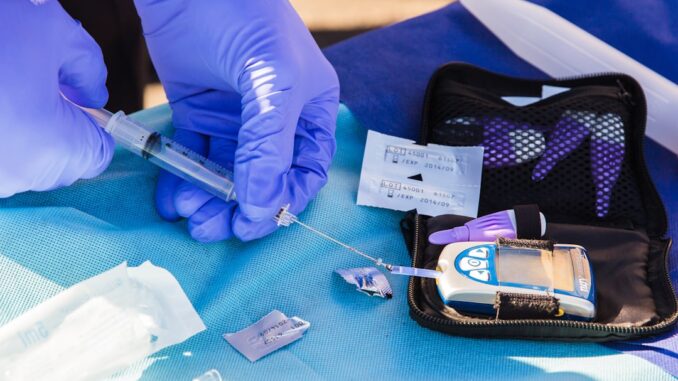
Managing diabetes effectively requires precise insulin dosing, a task that has traditionally relied on patient self-monitoring and manual adjustments. However, recent advancements in artificial intelligence, particularly reinforcement learning (RL), are revolutionizing this process by enabling personalized insulin therapy.
Understanding Reinforcement Learning in Diabetes Management
Reinforcement learning is a subset of machine learning where algorithms learn optimal behaviors through interactions with an environment, receiving feedback in the form of rewards or penalties. In the context of diabetes management, the environment comprises the patient’s physiological responses to insulin and glucose levels. The RL algorithm aims to determine the most effective insulin dosing strategies by continuously learning from these interactions.
Advancements in Personalized Insulin Therapy Using RL
Recent studies have demonstrated the potential of RL in creating personalized insulin dosing regimens. For instance, a study published in Die Diabetologie highlighted the development of an actor-critic method initialized with information transferred from insulin to glucose signals. This approach showed improved glycemic regulation in in-silico trials for adults, adolescents, and children, with a notable reduction in the time spent in hypoglycemia compared to standard treatment, achieving a mean time in range (TIR) of 83.4% across the population. (link.springer.com)
See how TrueNAS offers real-time support for healthcare data managers.
Another significant contribution is the Adaptive Basal-Bolus Advisor (ABBA), a personalized insulin treatment recommendation approach based on RL for individuals with Type 1 and Type 2 diabetes. An in-silico evaluation demonstrated that ABBA significantly improved TIR and reduced both times below and above range compared to standard basal-bolus advisors. The performance continued to improve over two months, whereas the standard advisor exhibited only modest changes. (arxiv.org)
Integration of RL in Closed-Loop Systems
The integration of RL into closed-loop systems, often referred to as artificial pancreases, represents a significant advancement in diabetes management. These systems combine continuous glucose monitoring with insulin delivery, using RL algorithms to adjust insulin doses in real-time. A study published in PubMed explored the use of a Dual Proximal Policy Optimization (Dual PPO) controller for personalized insulin delivery in a hybrid closed-loop system. The controller optimized patient-specific insulin bounds, effectively reducing severe hyperglycemia while maintaining a low incidence of severe hypoglycemia. Unlike conventional open-loop methods, this system requires minimal patient interaction, eliminating the need for carbohydrate estimation. (pubmed.ncbi.nlm.nih.gov)
Challenges and Future Directions
Despite the promising results, several challenges remain in implementing RL-based insulin therapy. Ensuring patient safety is paramount, as RL algorithms must be designed to prevent adverse events such as hypoglycemia. Additionally, the variability in individual responses to insulin necessitates continuous adaptation and personalization of dosing strategies. Future research is focused on refining these algorithms, incorporating patient preferences, and conducting extensive clinical trials to validate their efficacy in diverse populations.
In conclusion, the application of reinforcement learning in personalized insulin therapy offers a transformative approach to diabetes management. By leveraging AI to tailor insulin dosing to individual needs, these advancements hold the potential to improve glycemic control, reduce complications, and enhance the quality of life for individuals with diabetes.
References
-
Daskalaki, E., et al. (2025). “Role of artificial intelligence in enhancing insulin recommendations and therapy outcomes.” Die Diabetologie. (link.springer.com)
-
Panagiotou, M., et al. (2025). “Personalised Insulin Adjustment with Reinforcement Learning: An In-Silico Validation for People with Diabetes on Intensive Insulin Treatment.” arXiv. (arxiv.org)
-
Fox, I., et al. (2025). “Deep reinforcement learning for Type 1 Diabetes: Dual PPO controller for personalized insulin management.” PubMed. (pubmed.ncbi.nlm.nih.gov)


So, if the algorithm learns from rewards, does that mean a perfectly managed blood sugar level earns it a virtual pat on the head? Just curious how motivating good health actually is for a machine!
That’s a great analogy! You’re right, in a sense, the algorithm is ‘rewarded’ for achieving optimal blood sugar levels. This reward is a mathematical function that encourages the AI to maintain good health, and the more positive the reward signal is, the greater change in the algorithms behaviour and overall optimisation #AIinHealthcare #DiabetesManagement
Editor: MedTechNews.Uk
Thank you to our Sponsor Esdebe
The point about individual variability is key. How are researchers addressing the challenge of tailoring RL algorithms to account for differences in patient physiology, lifestyle, and adherence to treatment plans, particularly in real-world settings outside of clinical trials?
Great question! Researchers are exploring a few avenues to address individual variability. One promising approach is incorporating more patient-specific data into the RL algorithms, including continuous glucose monitoring data, activity levels, and even dietary habits. This allows for more personalized and adaptive insulin dosing strategies. It is a fascinating area of research with huge potential!
Editor: MedTechNews.Uk
Thank you to our Sponsor Esdebe